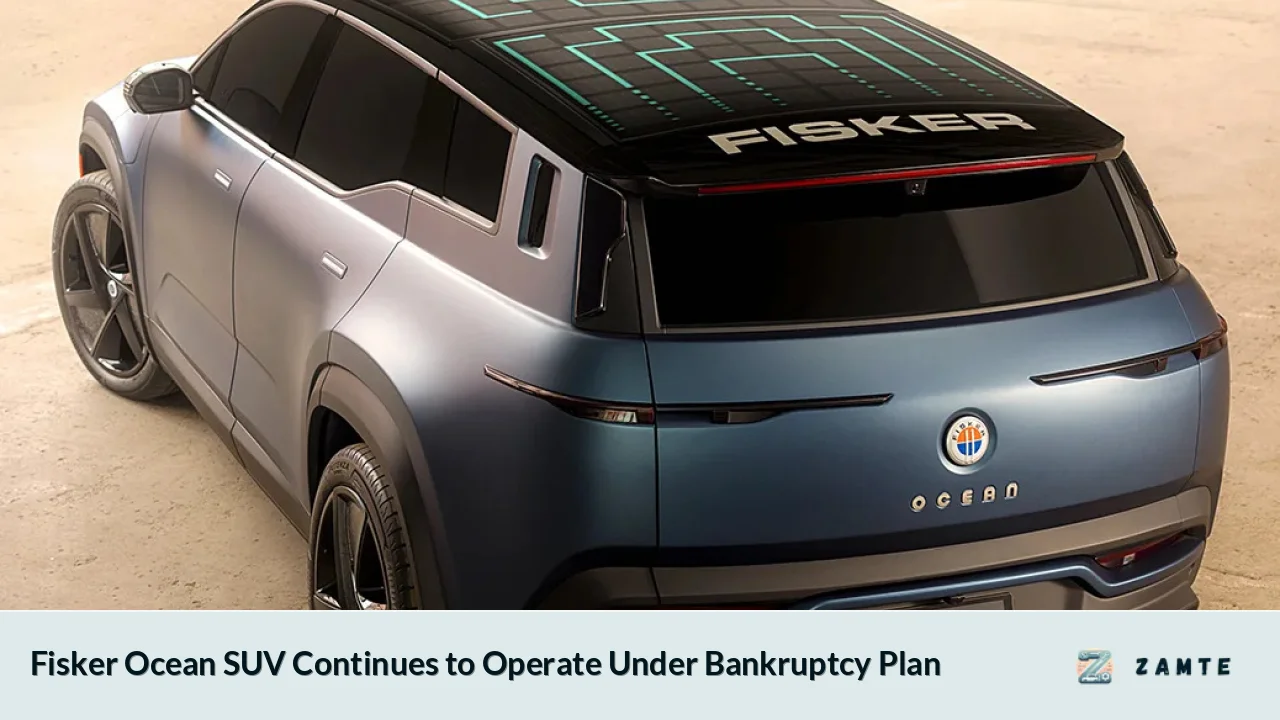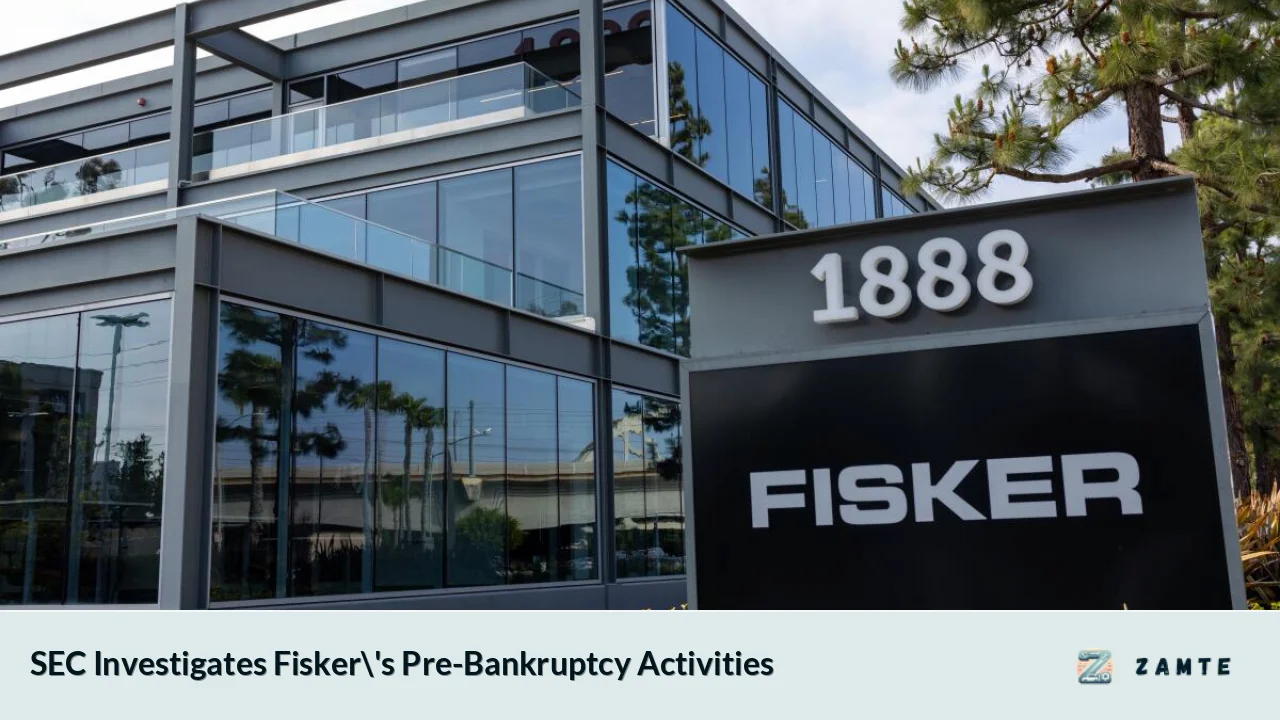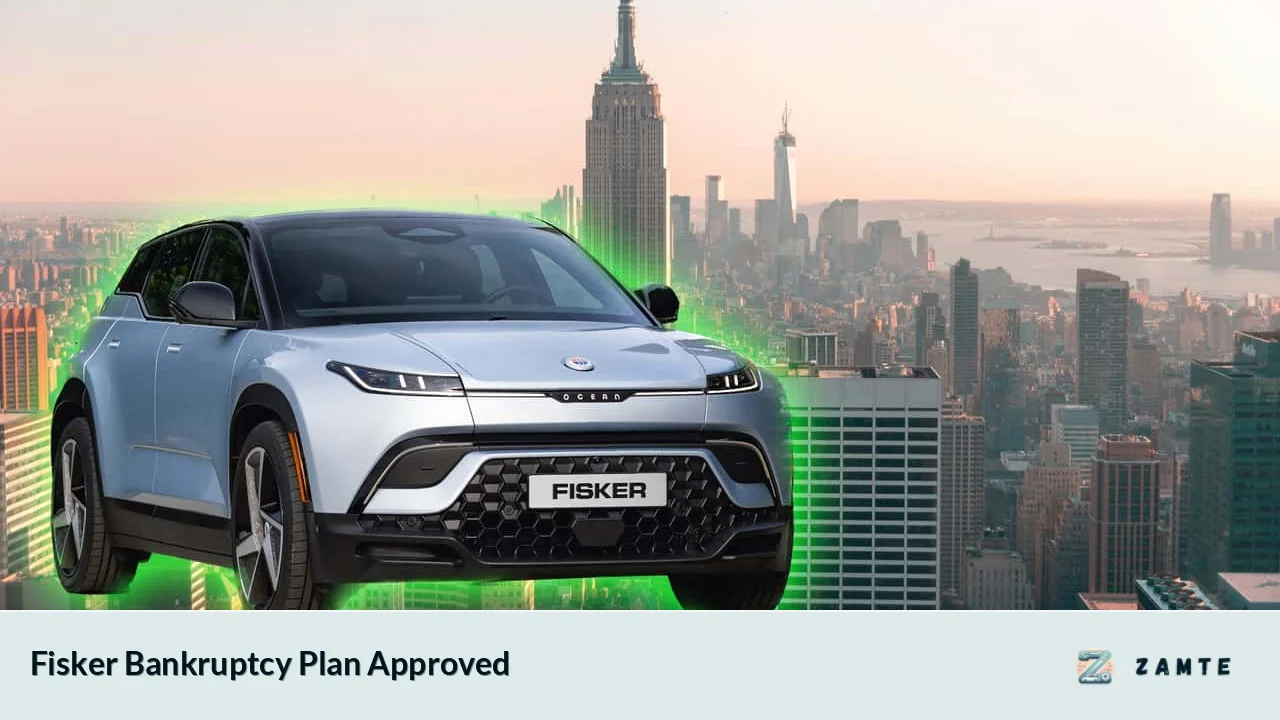On October 13, 2024, U.S. Bankruptcy Court Judge Thomas Horan approved Fisker Inc.'s bankruptcy plan, marking a significant milestone in the electric vehicle (EV) maker's tumultuous journey. This decision comes amidst an ongoing Securities and Exchange Commission (SEC) investigation and has far-reaching implications for Fisker owners, investors, and the broader EV industry.
| Key Points | Details |
|---|---|
| Bankruptcy Plan Approval Date | October 13, 2024 |
| Approving Judge | Thomas Horan, U.S. Bankruptcy Court |
| Main Beneficiaries | Fisker Ocean owners |
| Key Outcomes | Continued vehicle operation, recall coverage, software updates |
| SEC Investigation | Ongoing, multiple subpoenas issued |
The Road to Bankruptcy: Fisker's Downfall
Fisker Inc., once hailed as a promising contender in the EV market, filed for Chapter 11 bankruptcy protection in June 2024, barely a year after commencing deliveries of its debut model, the Ocean SUV. The company's rapid descent from a billion-dollar valuation to bankruptcy shocked many in the automotive industry. To understand the significance of the approved bankruptcy plan, it's crucial to examine the factors that led to Fisker's downfall.
Supply Chain Woes and Production Challenges
Fisker's ambitious plans were severely hampered by supply chain disruptions and production challenges. The company struggled to ramp up production of the Ocean SUV, falling far short of its projected delivery targets. This not only affected revenue but also eroded investor confidence.
Quality Control Issues
Early adopters of the Fisker Ocean reported numerous quality control issues, ranging from software glitches to mechanical problems. These issues tarnished the brand's reputation and led to costly recalls, further straining Fisker's already precarious financial position.
"I was excited about my Fisker Ocean, but the constant software issues and build quality problems have been a major letdown. It's not what you expect from a $70,000 vehicle."
Financial Mismanagement Allegations
As Fisker's financial troubles deepened, allegations of mismanagement surfaced. The company faced criticism for its aggressive spending and optimistic projections that failed to materialize. These concerns likely contributed to the SEC's decision to launch an investigation into Fisker's pre-bankruptcy conduct.
The Approved Bankruptcy Plan: A Lifeline for Owners

The bankruptcy plan approved by Judge Horan on October 13 prioritizes the interests of Fisker Ocean owners, addressing several key concerns:
Continued Vehicle Operation
The plan ensures that Fisker Ocean owners can continue to drive and operate their vehicles for years to come. This provision alleviates fears that the bankruptcy would render the vehicles inoperable or unsupported.
Recall Coverage and Maintenance
Under the approved plan, Fisker's estate will cover the costs of existing recalls, including those for malfunctioning brakes and a defective water pump. This commitment addresses safety concerns and provides financial relief for owners who might otherwise have been burdened with these expenses.
Software Updates and Cloud Access
A critical component of the plan involves ensuring continued access to Fisker's cloud server for over-the-air software updates. American Lease, a New York-based company that acquired Fisker's unsold inventory, will pay $2.5 million for cloud access over five years and share this access with Fisker owners.
"We're happy with the outcome today, and we're optimistic about the future. There's still some discussion and negotiation needed, but we'll have the services we need to maintain our cars."[1] - Brandon Jones, President of Fisker Owners Association
The SEC Investigation: Unraveling Fisker's Pre-Bankruptcy Conduct

While the bankruptcy plan provides some relief for Fisker owners, the company's troubles are far from over. The SEC has confirmed an ongoing investigation into Fisker, focusing on possible securities violations that occurred before the bankruptcy filing. This investigation adds another layer of complexity to Fisker's winding-down process and raises questions about potential legal consequences for the company's executives.
Scope of the SEC Investigation
The SEC has issued multiple subpoenas to Fisker as part of its investigation. While the specific details remain confidential, the regulator's focus likely includes:
- Financial reporting accuracy
- Disclosures to investors
- Statements made by executives about the company's prospects
- Potential insider trading
The SEC's involvement underscores the seriousness of the allegations and the potential for significant legal ramifications.
Implications for Fisker Executives
Fisker's co-founders, Henrik Fisker and Geeta Gupta-Fisker, along with other company officials, are already facing multiple shareholder lawsuits. These legal challenges allege violations of fiduciary duties and securities laws, including claims that Henrik Fisker made public statements touting the company's prospects even as its financial situation deteriorated.
"The SEC has been much more aggressive in pursuing its claims and remedies, even if the focus of its investigation has filed for bankruptcy."[2] - Jennifer Lee, former assistant director at the SEC Division of Enforcement
The outcome of the SEC investigation could have serious consequences for Fisker's executives, potentially including fines, penalties, and even criminal charges if significant wrongdoing is uncovered.
Impact on the EV Industry and Investor Confidence
Fisker's bankruptcy and the subsequent SEC investigation send ripples through the EV industry, affecting various stakeholders:
Investor Sentiment
The Fisker saga has undoubtedly shaken investor confidence in EV startups, particularly those that have gone public through special purpose acquisition companies (SPACs). The company's rapid rise and fall serve as a cautionary tale for investors considering bets on unproven EV manufacturers.
Competition and Market Dynamics
Fisker's exit from the market could benefit established EV makers and other startups by reducing competition. However, it also highlights the challenges facing newcomers in the capital-intensive automotive industry.
| Company | Market Position | Potential Impact from Fisker's Bankruptcy |
|---|---|---|
| Tesla | Market leader | Strengthened position, reduced competition |
| Rivian | Emerging player | Increased scrutiny, potential for market share gain |
| Lucid | Luxury EV maker | Pressure to demonstrate viability, potential investor wariness |
Regulatory Scrutiny
The SEC's investigation into Fisker may lead to increased regulatory oversight of the EV sector, particularly for companies going public through SPACs. This heightened scrutiny could result in more stringent reporting requirements and due diligence processes for EV startups seeking public investment.
Lessons Learned and Future Outlook
Fisker's bankruptcy and the approved plan offer several key lessons for the EV industry and investors:
- Production Challenges: Scaling up EV production is complex and capital-intensive. Startups must have realistic timelines and robust supply chain management.
- Quality Control: Early product quality is crucial for building brand reputation and customer loyalty in the competitive EV market.
- Financial Transparency: Clear and accurate financial reporting is essential for maintaining investor trust and avoiding regulatory scrutiny.
- Customer Support: Even in bankruptcy, prioritizing customer needs (as seen in Fisker's plan) can help preserve brand value and potentially pave the way for future revivals.
Looking ahead, the EV industry will likely see increased consolidation and partnerships as companies seek to share development costs and mitigate risks. Established automakers with deep pockets and existing manufacturing expertise may gain an advantage in the EV race.
Conclusion: A New Chapter for Fisker Owners and the EV Landscape
The approval of Fisker's bankruptcy plan marks the end of a tumultuous chapter for the once-promising EV startup. While the plan provides some reassurance for Fisker Ocean owners, the ongoing SEC investigation serves as a reminder of the volatility and risks inherent in the rapidly evolving EV market.
For the broader EV industry, Fisker's story is both a cautionary tale and a learning opportunity. As the sector continues to mature, companies that can navigate the complex interplay of innovation, production scalability, and financial prudence will be best positioned to succeed.
Ultimately, the Fisker bankruptcy underscores the challenges of disrupting the automotive industry and the importance of balancing ambitious goals with realistic execution. As the dust settles, all eyes will be on how other EV startups adapt to these lessons and how regulators shape the future landscape of electric mobility.
FAQs
- What happens to Fisker Ocean owners under the approved bankruptcy plan?
Owners can continue driving their vehicles and will receive support for recalls, maintenance, and software updates. - Is the SEC investigation likely to affect Fisker Ocean owners?
The investigation primarily concerns Fisker's pre-bankruptcy conduct and is not expected to directly impact current owners. - Will Fisker's intellectual property be sold to another automaker?
It's possible, as Fisker's designs and software code could be valuable to other manufacturers looking to enter the EV market. - How might Fisker's bankruptcy impact other EV startups?
It may lead to increased investor scrutiny and regulatory oversight for other EV companies, particularly those going public via SPACs. - Can Fisker owners expect long-term support for their vehicles?
The bankruptcy plan ensures support for the near future, but long-term support will depend on the success of arrangements with third-party providers.
